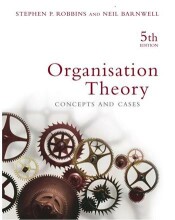Osland Article
5 important questions on Osland Article
What is sophisticated stereotyping?
What are the limitations of helping stereotypes?
2. They are descriptive rather than evaluative
3. Accurate in their description of a behavioural norm
4. The first best guess about a group prior to having direct information
5. Modified based on further observation and experience
Why don't we know more about cultural paradoxes?
2. Lack of cultural experience leading to failure in comprehension
3. Cultural learning that plateaus before complete comprehension is reached
4. Western dualism that generates theories with no room for paradox or holistic maps
5. Features of cross-cultural research that favour simplicity over complexity
6. A between-culture approach rather than a within-culture approach that is less likely to show the paradoxes
- Higher grades + faster learning
- Never study anything twice
- 100% sure, 100% understanding
What are the possible explanations of behaviour that seems paradoxical?
2. Unresolved cultural issues
3. Bipolar patterns
4. Role differences
5. Real vs espoused values
6. Value trumping (a set of values is preferred in a certain context)
What are the steps in the cultural sense-making cycle?
2. Making attributions - drawing inferences based on identity and experience
3. Selecting schema - enacting appropriate behaviour scripts
The question on the page originate from the summary of the following study material:
- A unique study and practice tool
- Never study anything twice again
- Get the grades you hope for
- 100% sure, 100% understanding






























